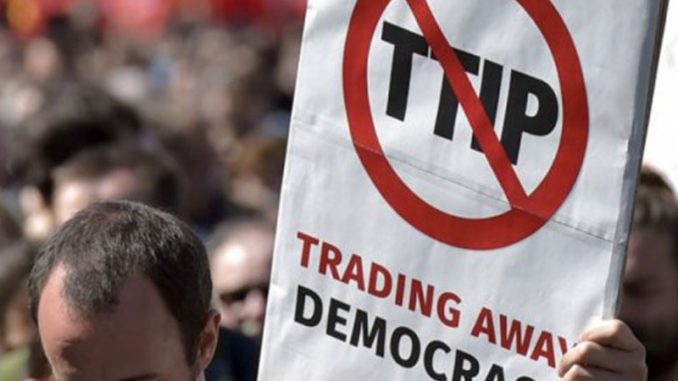
Climate change threatens the right to health. According to the World Health Organization, climate change is already responsible for approximately 150,000 deaths every year. [1] It also worsens environmental conditions, contributing to poorer health, nutrition, and water quality.
Although natural disasters can strike anywhere, 95% of the deaths caused by them actually occur in the global South. [2] For example, on November 8, 2013, typhoon Haiyan wreaked havoc in the Philippines archipelago, leaving behind thousands of dead and affecting millions more. [3] Acres upon acres of cultivated land were destroyed, leaving the population without livelihood and their main source of income.
The Intergovernmental Panel on Climate Change (IPCC) warns that if no change occurs in CO 2emissions, low lying countries will be more and more affected by extreme weather. [4] It also predicts that progress made in the fight against hunger will be reversed by the damage caused by climate change: studies show that in 2050 an additional 49 million people will suffer from hunger, with young children in developing countries most at risk. [5] By 2050, the United Nations estimates the number of people living in extreme poverty will reach 3 billion and there could be as many as 200 million climate change refugees. [6] It is only by taking coordinated action against climate change that these scenarios can be averted. If nothing is done, the right to health of millions people will be compromised.
So although it is time to fight climate change, there are structural issues within our economic system that prevent us from waging an effective war against climate change. Free trade is one of those structural issues.
The European Union, by concluding free trade agreements with the countries of the South, enables multinational organizations to increase their exports and presence in new markets. [7] The free trade agreements enable these organizations to move to countries of the South where labor is cheap and resources (wood, minerals, land, water) plentiful and accessible. [8] This results in deforestation, intensive agriculture, mining or depletion of the ground water. Too often there are insufficient laws and regulations to stop multinationals from destroying resources on a massive scale. [9] For example, when Coca- Cola established itself in the village of Plachimada in India, the company started to pump the local water supply at a rate of 1.5 million liters per day, drying out the groundwater. [10] In the Philippines, mining on a large scale destroys natural resources, causing air and river pollution, and deforestation of millions of acres.[11] The human rights in the Philippines are completely violated. Conflicts over mining account for 42 murders of environmental and and defenders since 2002. [12] This abuse of the natural environment, and the resulting pollution, increases CO 2 emissions and contributes to climate change.[13] These are examples of the people of the South being the first victims of climate change with the least resources to adapt.
To fight climate change is to put in place a fair and sustainable society. We need a society which values respect for ecological systems, local production and consumption systems, development of renewable energy, cooperation between citizens to share and distribute existing resources.
Free trade agreements produce the opposite. Our economic system favors international division of production systems, increases international exchange and further stimulates dependency on fossil fuels. [14] The “investor-state dispute settlement” (ISDS) mechanism also inhibits the implementation of policies on energy transition and ecology because it allows companies to sue governments in private international tribunals, demanding taxpayer compensation for public interest policies that allegedly limit their profits. [15] The rights of investors in multinational organizations trump the needs of the environment and the human rights of people living in vulnerable situations.
The European Union lacks coherency in its policies and discourse about climate change versus free trade. It sets lofty goals for COP21 and the fight against climate change but at the same time, it is concluding free trade agreements with as many countries as possible, opening up markets and increasing vulnerability to climate change impacts. [16]
Now is the time for social movements addressing climate change, and those fighting free trade agreements, to join forces to exert more pressure on governments.
Alexia Fouarge is working as Climate Change Policy and Campaign Officer atMédecine pour le Tiers Monde(M3M), a Belgian NGO.
(Original article found in the Health and Human Rights Journal of Harvard: http://www.hhrjournal.org/?p=6948.)

Leave a Reply